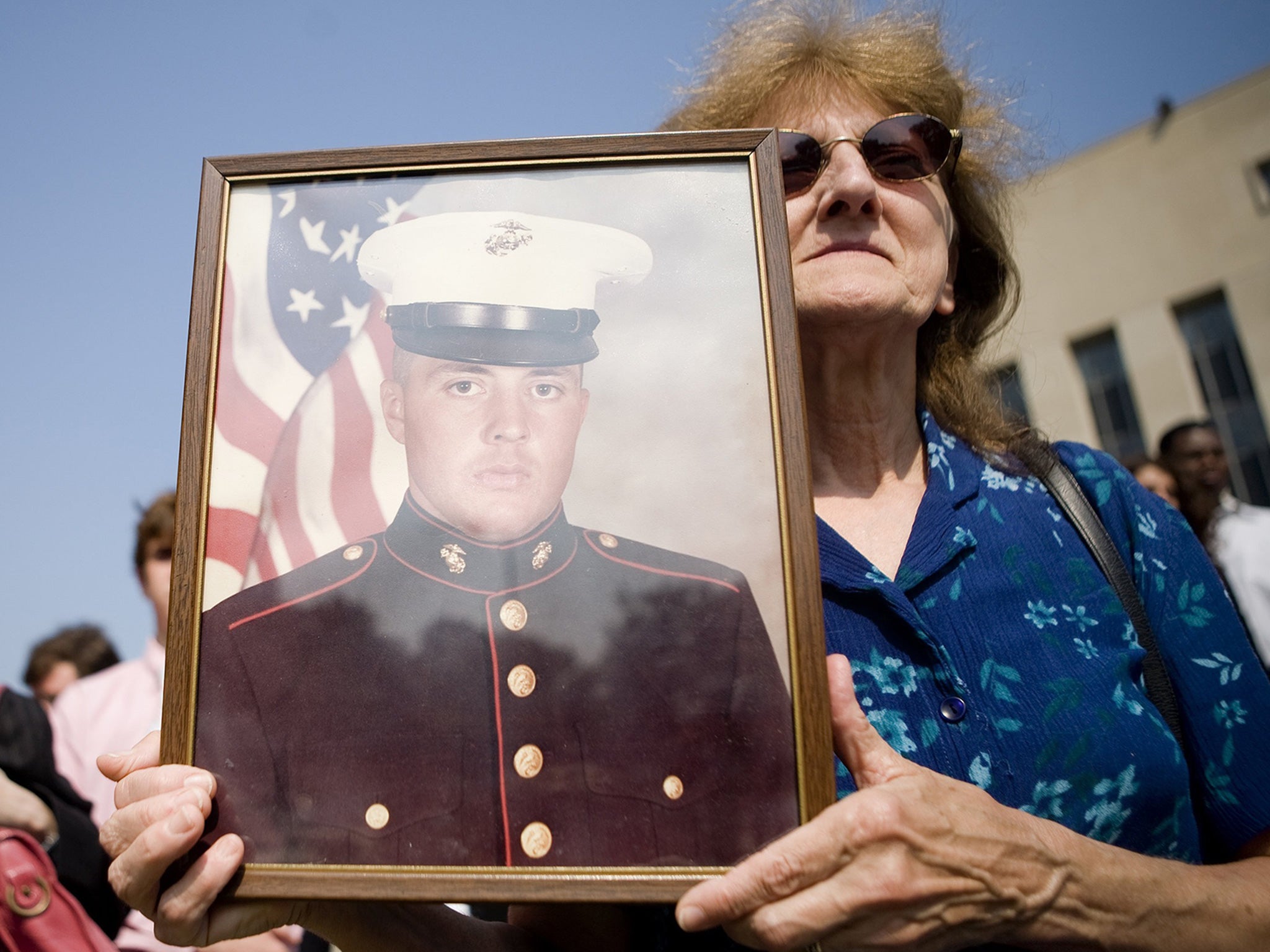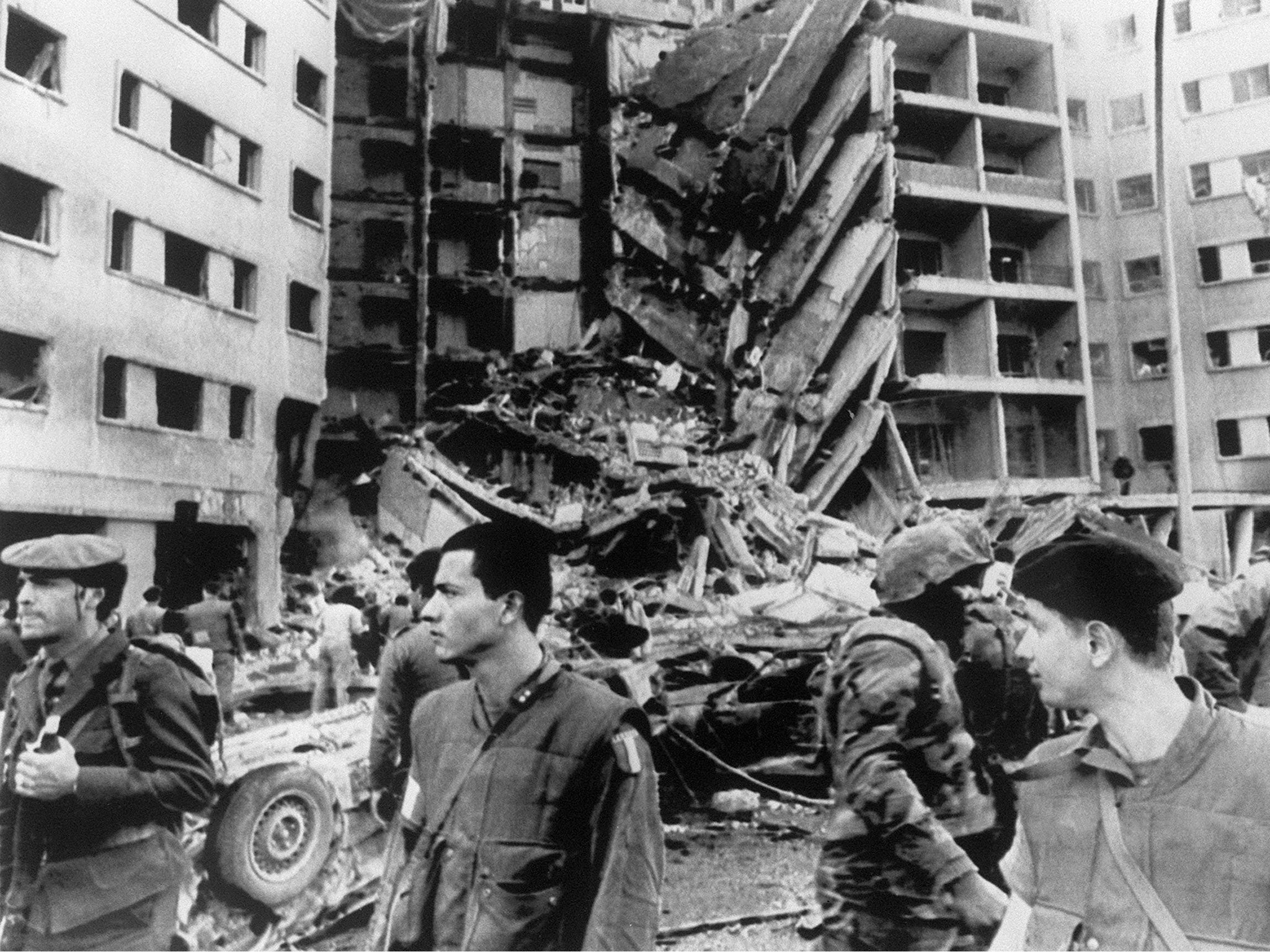US Supreme Court rules families of victims of terror attacks blamed on Iran can claim $2bn from its frozen assets
Republican presidential hopeful Ted Cruz tweeted that the ruling was ‘a victory for justice’

Your support helps us to tell the story
From reproductive rights to climate change to Big Tech, The Independent is on the ground when the story is developing. Whether it's investigating the financials of Elon Musk's pro-Trump PAC or producing our latest documentary, 'The A Word', which shines a light on the American women fighting for reproductive rights, we know how important it is to parse out the facts from the messaging.
At such a critical moment in US history, we need reporters on the ground. Your donation allows us to keep sending journalists to speak to both sides of the story.
The Independent is trusted by Americans across the entire political spectrum. And unlike many other quality news outlets, we choose not to lock Americans out of our reporting and analysis with paywalls. We believe quality journalism should be available to everyone, paid for by those who can afford it.
Your support makes all the difference.The US Supreme Court has ruled that the families of victims from several terrorist attacks blamed on Iran in the 1980s and 1990s can collect close to $2bn (£1.4bn) from the Islamic Republic’s frozen assets.
The Court’s 6-2 decision upheld a ruling by lower courts, awarding damages to the relatives of those killed in the 1983 bombings of a US Marine barracks and the US Embassy in Beirut, as well as the 1996 Khobar Towers bombing in Saudi Arabia and other attacks for which Iran is believed to have been responsible.
The plaintiffs include more than 1,300 relatives of the victims, led by Deborah Peterson, the sister of one of the 241 Americans killed in the 1983 barracks bombing. The US withdrew almost all of its troops from Lebanon the following year.

The US government claims the Beirut attacks were carried out by the Lebanese Shia militias, trained and backed by Iran, which went on to form the Islamist movement Hezbollah in 1985. Hezbollah and Iran have both denied involvement in the Beirut bombings and the later attacks.
Ms Peterson and other family members of the Beirut bombing victims first filed a lawsuit against Iran in 2001. The Islamic Republic’s liability was accepted by a US federal court in 2007, and the following year it emerged that Iran’s central Bank, Bank Markazi, had $1.75m in bond assets frozen in a New York account.
In 2012, US President Barack Obama signed a law ordering Bank Markazi to turn over its assets, but the bank repeatedly beat back orders from lower courts to pay up. The case before the Supreme Court was not whether Iran ought to reimburse the plaintiffs, but whether Congress had overstepped its authority by passing the law.
Justice Ruth Bader Ginsburg wrote the Court’s majority opinion, suggesting Congress had not acted outside its remit. “By altering the law governing the attachment of particular property belonging to Iran, Congress acted comfortably within the political branches’ authority over foreign sovereign immunity and foreign-state assets,” she wrote.
The case was a rarity, in that the Obama administration and Republicans in Congress broadly agreed on its merit. Ultra-conservative Republican presidential hopeful Ted Cruz tweeted that the ruling was “a victory for justice.”
The court’s convincing 6-2 split was also significant. Since the death in February of the right-wing Justice Antonin Scalia, congressional Republicans have refused to consider any Obama nominees for the vacant seat, leaving the eight-person Court split evenly between liberals and conservatives and leading to at least three deadlocked 4-4 decisions in politically divisive cases.
Join our commenting forum
Join thought-provoking conversations, follow other Independent readers and see their replies
Comments